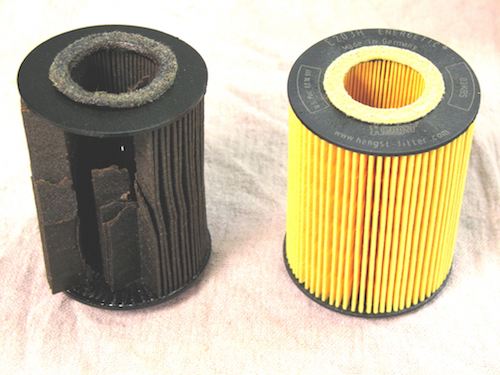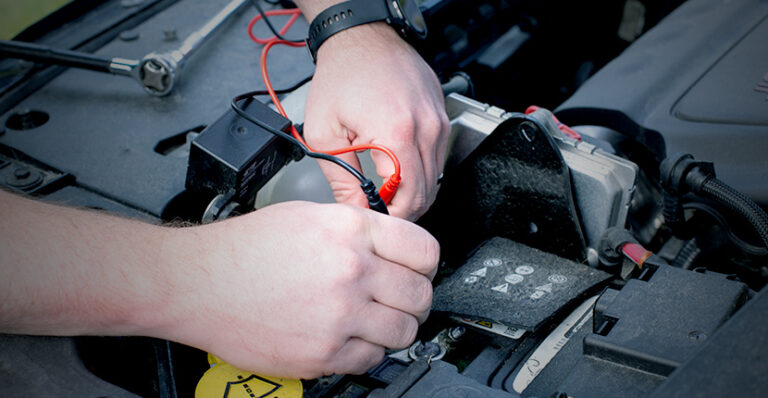Does It Matter What Oil Filter You Use?

The oil filter is a small but crucial component of your car’s engine. Its job is to trap contaminants and debris in the oil, ensuring the engine runs smoothly and efficiently. With so many oil filter options available, you may wonder, “Does it really matter what oil filter I use?” The answer is a resounding yes. Choosing the right oil filter is essential for your engine’s health and longevity. This article will explain why the type and quality of your oil filter matter and provide guidance on selecting the best option for your vehicle.
Why Is an Oil Filter Important?
An oil filter performs several critical functions:
- Traps Contaminants: Filters out dirt, metal particles, and other debris that can damage engine components.
- Maintains Oil Flow: Ensures clean oil circulates efficiently through the engine.
- Prolongs Engine Life: Prevents wear and tear caused by unfiltered oil.
Without a proper oil filter, contaminants can accumulate, leading to reduced engine performance and costly repairs.
Types of Oil Filters
There are several types of oil filters, each designed for specific engines and oil types.
1. Primary/Full-Flow Oil Filters
- Most common type, found in nearly all vehicles.
- Filters all the oil before it circulates through the engine.
2. Secondary/Bypass Oil Filters
- Works alongside the primary filter to provide extra filtration.
- Used in high-performance vehicles or heavy-duty applications.
3. Cartridge Oil Filters
- Consist of a replaceable filter element inside a housing.
- Eco-friendly and easy to inspect for wear.
4. Spin-On Oil Filters
- Combines the filter element and housing into a single unit.
- Easy to replace but less environmentally friendly.
5. High-Performance Oil Filters
- Designed for extreme conditions or synthetic oils.
- Typically found in sports cars or vehicles subjected to heavy loads.
Factors to Consider When Choosing an Oil Filter
1. Compatibility with Your Vehicle
Oil filters are not one-size-fits-all. The filter you choose must be compatible with your vehicle’s make, model, and engine type. Consult your owner’s manual or a trusted mechanic to find the right fit.
2. Oil Type
If you’re using synthetic oil, you’ll need an oil filter designed to handle the finer particles and longer intervals associated with synthetic oil.
3. Filtration Efficiency
The efficiency of an oil filter is measured by its ability to trap small particles. High-quality filters can trap particles as small as 20 microns, while lower-quality filters may only filter particles larger than 30 microns.
4. Build Quality
A durable oil filter will have a sturdy casing, high-quality filter media, and a reliable anti-drain-back valve to prevent oil from draining out when the engine is off.
5. Brand Reputation
Stick to reputable brands like Fram, Bosch, Mobil 1, K&N, or OEM (Original Equipment Manufacturer) filters to ensure reliability and performance.
What Happens If You Use the Wrong Oil Filter?
Using the wrong oil filter can have several negative consequences:
- Poor Fit: A poorly fitting filter can cause oil leaks and reduced filtration efficiency.
- Inadequate Filtration: The wrong filter may not trap contaminants effectively, leading to engine wear.
- Flow Restriction: Some filters may restrict oil flow, starving the engine of lubrication.
- Shortened Engine Life: Over time, unfiltered oil can cause irreversible damage to engine components.
How to Choose the Right Oil Filter
1. Check Your Owner’s Manual
The easiest way to ensure you’re using the correct oil filter is to refer to your vehicle’s owner’s manual.
2. Match with Your Oil
If you’re switching to synthetic oil, upgrade to a filter designed for synthetic oil to maximize performance.
3. Consider Driving Conditions
If you drive in extreme conditions (e.g., high heat, cold, or heavy loads), opt for a high-performance oil filter.
4. Consult a Professional
When in doubt, seek advice from a trusted mechanic or automotive specialist.
Common Myths About Oil Filters
1. All Oil Filters Are the Same
False. Oil filters vary in quality, filtration capacity, and compatibility.
2. You Don’t Need to Change the Filter with Every Oil Change
While some filters are designed to last longer, it’s generally best to replace the oil filter every time you change the oil.
3. Bigger Filters Are Better
Not necessarily. The size of the filter must match the engine’s specifications to ensure proper oil flow and filtration.
Frequently Asked Questions About Oil Filters
1. How Often Should I Replace My Oil Filter?
Replace your oil filter during every oil change, typically every 3,000 to 7,500 miles, depending on your vehicle and oil type.
2. Can I Use a Cheaper, Off-Brand Oil Filter?
While budget options are available, it’s better to invest in a high-quality filter to protect your engine and avoid costly repairs.
3. Is It Okay to Use a Universal Oil Filter?
Universal oil filters are not recommended, as they may not fit or function properly with your engine.
4. What Are OEM Oil Filters?
OEM (Original Equipment Manufacturer) filters are made by or for your car’s manufacturer and are specifically designed for your vehicle.
Conclusion
Yes, it absolutely matters what oil filter you use. The right oil filter ensures that your engine receives clean, debris-free oil, which is essential for optimal performance and longevity. By considering factors like compatibility, oil type, and filtration efficiency, you can make an informed choice that protects your engine and keeps your car running smoothly.
Always consult your owner’s manual, invest in a high-quality filter, and replace it regularly to maintain your vehicle’s health. Remember, a small investment in the right oil filter can save you from expensive engine repairs down the road.
Also Check:





